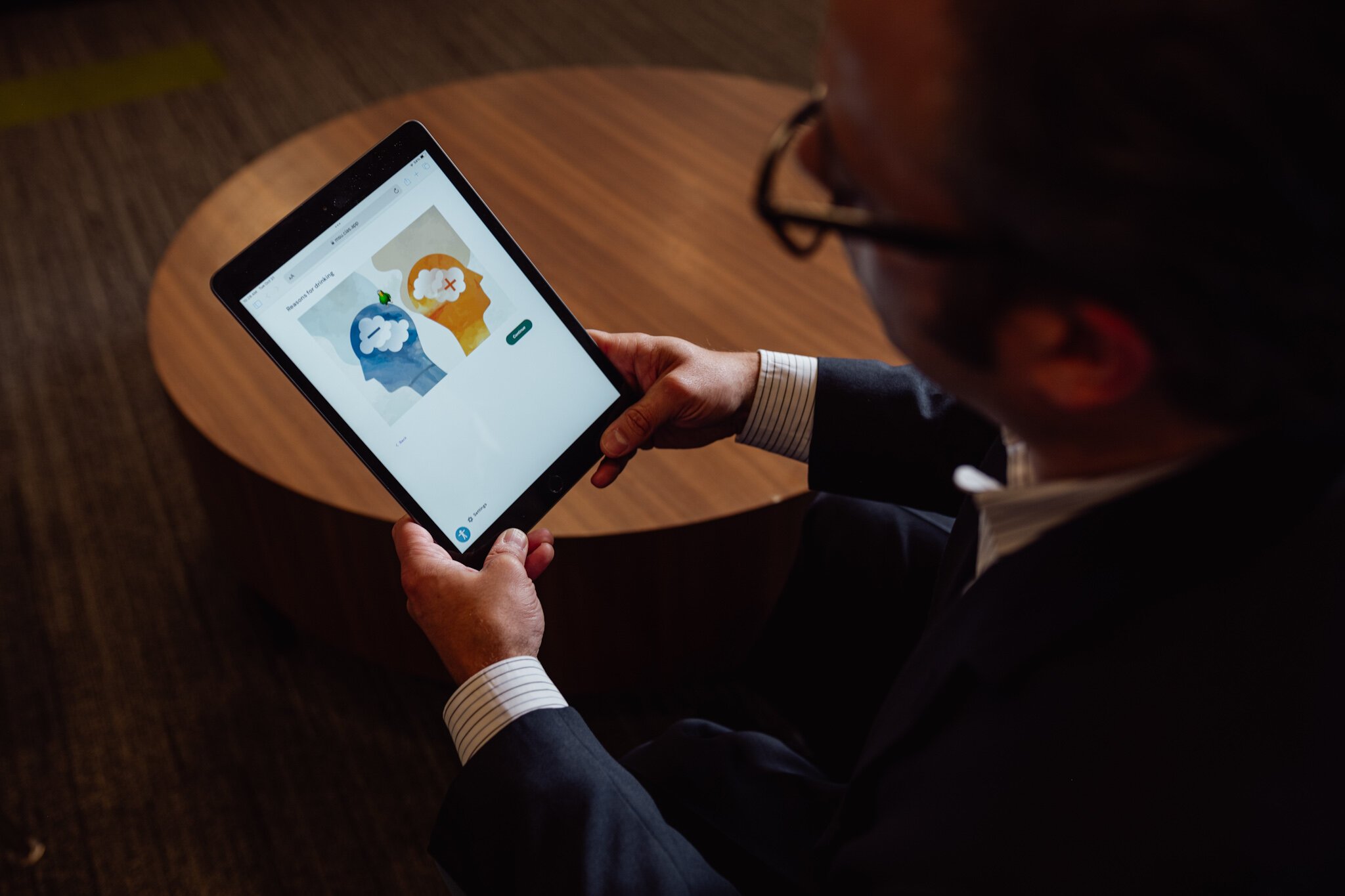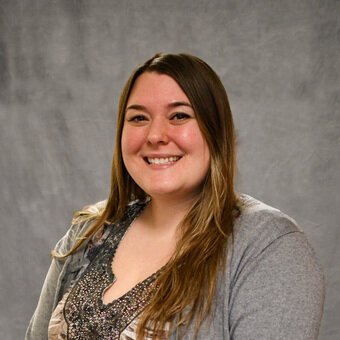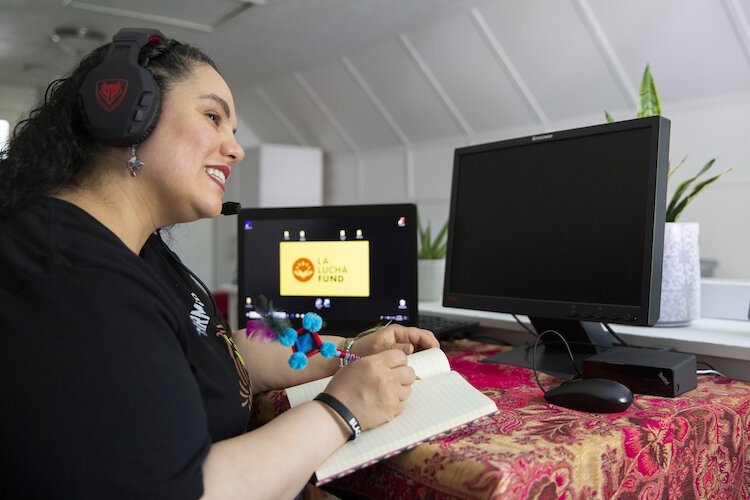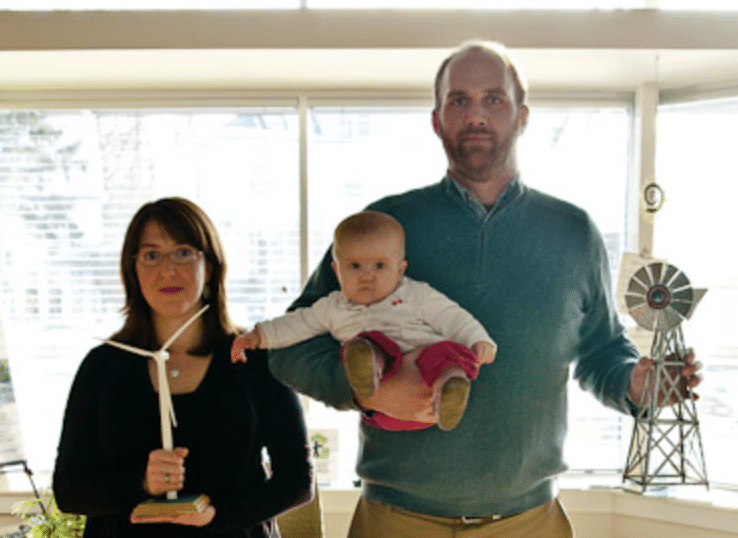
Telehealth, which ramped up during the COVID-19 pandemic, is here to stay and many agencies and providers are finding new ways to implement it.
This article is part of State of Health, a series about how Michigan communities are rising to address health challenges. It is made possible with funding from the Michigan Health Endowment Fund.
Across Michigan, behavioral health care providers are leveraging innovative technological interventions to increase access to care. Telehealth, which ramped up during the COVID-19 pandemic, is here to stay and many agencies and providers are finding new ways to implement it.
“We’re living in a very need-now society, very in the moment. Telehealth supports that. It also makes the provider on the other end more strategic with their resources,” says Joshua Williams, executive director of quality management at LifeWays, a Certified Community Behavioral Health Clinic serving Jackson and Hillsdale counties. “They can minimize some of the administrative things … and spread those resources a little more effectively via telehealth and expand their reach.”

LifeWays first began focusing on telehealth options for its clients in response to the COVID pandemic. As a next step, it experimented with a project that introduced telehealth kiosks at two community organizations, and is now pursuing additional strategies such as establishing telehealth services in emergency departments.
“If everything’s dependent on someone coming into the [doctor’s] office, that’s just not an effective approach,” Williams says. “When we have such a diverse population that has such diverse needs — different work schedules, kids in school, barriers people experience in trying to find transportation — we set people up for failure. But if I can take my lunch break and call the tele-doc and not have to spend 30 minutes of drive time, that really changes the dynamic of getting access to services.”
Addressing barriers to behavioral health across Michigan
In the Upper Peninsula, Great Lakes Recovery Center will connect Medicaid, Medicare, and MI Health Plan users with behavioral health providers and resources through the virtual health platform “Care Convene.” Barriers to accessing behavioral care in the U.P. include long distances between providers, a shortage of local psychiatric providers, poverty, and poor health education. Through Care Convene, patients will be able to schedule appointments, update their providers on their health needs, receive medication and appointment reminders, and access immediate behavioral health resources. Providers will be able to expand their practices virtually, sending patients automatic alerts and health care information and following up with telehealth appointments.
In the Lower Peninsula’s Lake, Mecosta, Missaukee, Newago, and Wexford counties, federally qualified health center Family Health Care is utilizing telehealth to help patients access treatment for substance use disorder (SUD) and opioid use disorder (OUD).

“Not only does it help reduce the transportation issue — a lot of our areas are lower income and there are not a lot of public transportation options — [but] also it helps decrease the provider shortage issue,” says Family Health Center pharmacist Dr. Jonni Williams, program director for the initiative. “Now the provider does not have to be local. They could be somewhere else, somewhere more populated, and still be able to meet with these patients virtually to offer services.”
Founded in 1967, Family Health Care offers medical, dental, laboratory, x-ray, health education, full-service retail pharmacies, health education, and school-based Child and Adolescent Health Centers. Its community health outreach programs include behavioral health services, among others. Family Health Care launched the telehealth program for SUD and OUD at its Grant, Big Rapids, and White Cloud locations in 2021 with funding from the Michigan Health Endowment Fund. After the two-year grant period, the telehealth program was expanded to Family Health Care’s locations in Baldwin, Cadillac, and McBain.
“Treatment is much fewer and farther between in rural areas,” Williams says. “A lot of these people that have substance use problems are not able to find treatment at a location that works for them.”
Offering services via telehealth has resulted in improved access, reduced stigma, and decreased cost to patients. The program also addresses a regional behavioral health professional shortage by involving pharmacists as a support source for telehealth medication education and management.
“It’s kind of a novel approach to involve somebody besides therapists or physicians,” Williams says. “Most of our locations are very rural. Big Rapids [home of Ferris State University] is the least rural of all of them. And as far as impacts for the three counties that were originally worked in, there were over 250 emergency department visits for overdoses in just 2022 — and that’s not including overdoses that weren’t reported.”
Williams notes that SUD not only has a huge impact on Michigan’s rural communities but also is exacerbated by the lack of health care providers. In the telehealth program, all patients responding to surveys at the end of the two-year grant period shared that the program helped them to cope better with cravings, manage withdrawal symptoms, decrease medication costs, adhere to medication use, and wean off their medications.
“100% of the patients we met with said that the program helped them reduce the chances of relapsing,” Williams says. “100% found the option for telehealth appointments beneficial. One patient commented that the telehealth visit made things much smoother and more efficient and covered a wide range of topics that aren’t discussed in a normal doctor’s appointment. And 100% said they wanted to continue the service and that it should be offered to all substance use disorder patients.”
iPads encourage kids to engage in mental health screening
Other technological interventions for behavioral health happen in clinicians’ offices, rather than during telehealth visits. When kids visit any of Henry Ford Health’s (HFH) 14 pediatric primary care clinics, they get off their phones and onto an iPad that screens them for anxiety, depression, risk of self-harm or suicide, and the four most prevalent substances abused by children aged 12 and up: cannabis, cigarettes, e-cigarettes, and alcohol. An emotionally expressive animated narrator reads the kid-friendly screening questions aloud through earbuds. The open-source app was designed by Michigan State University’s Dr. Steven Ondersma.
If the screening detects issues, these are automatically entered onto the child’s electronic health record so the pediatrician can address them during the visit or refer the child and their parents or caregivers to additional support from HFH’s behavioral health program.
“The pediatrician can hopefully have a better launching pad for that conversation,” says Ondersma’s colleague Dr. Jordan Braciszewski, an associate scientist, associate director for training and education, and associate professor in research at the Michigan State University College of Human Medicine. “If the young person is using substances, the providers are handling that in the way that they handle other risky behaviors that start to crop up during the teenage years, whether that’s substance use, sexual activity, or sexually transmitted diseases. Our providers are certainly well-equipped to navigate that conversation with the young person and their caregivers.”

Plans are in the works to add an autism screening to the iPads. Since the iPad instantly interfaces with the patient’s electronic health record, it eliminates the inefficiencies of keying paper-and-pencil forms into the system by hand.
“When we have innovations in health care, either they make things easier for the patient and a little bit harder for providers, or easier for providers and maybe a little more challenging for patients,” Braciszewski says. “We’ve managed to implement something that has made both patients’ and providers’ lives easier.”
Estelle Slootmaker is a working writer focusing on journalism, book editing, communications, poetry, and children’s books. You can contact her at Estelle.Slootmaker@gmail.com or www.constellations.biz.
Jordan Braciszewski photos by Steve Koss. All other photos courtesy of the subjects.








